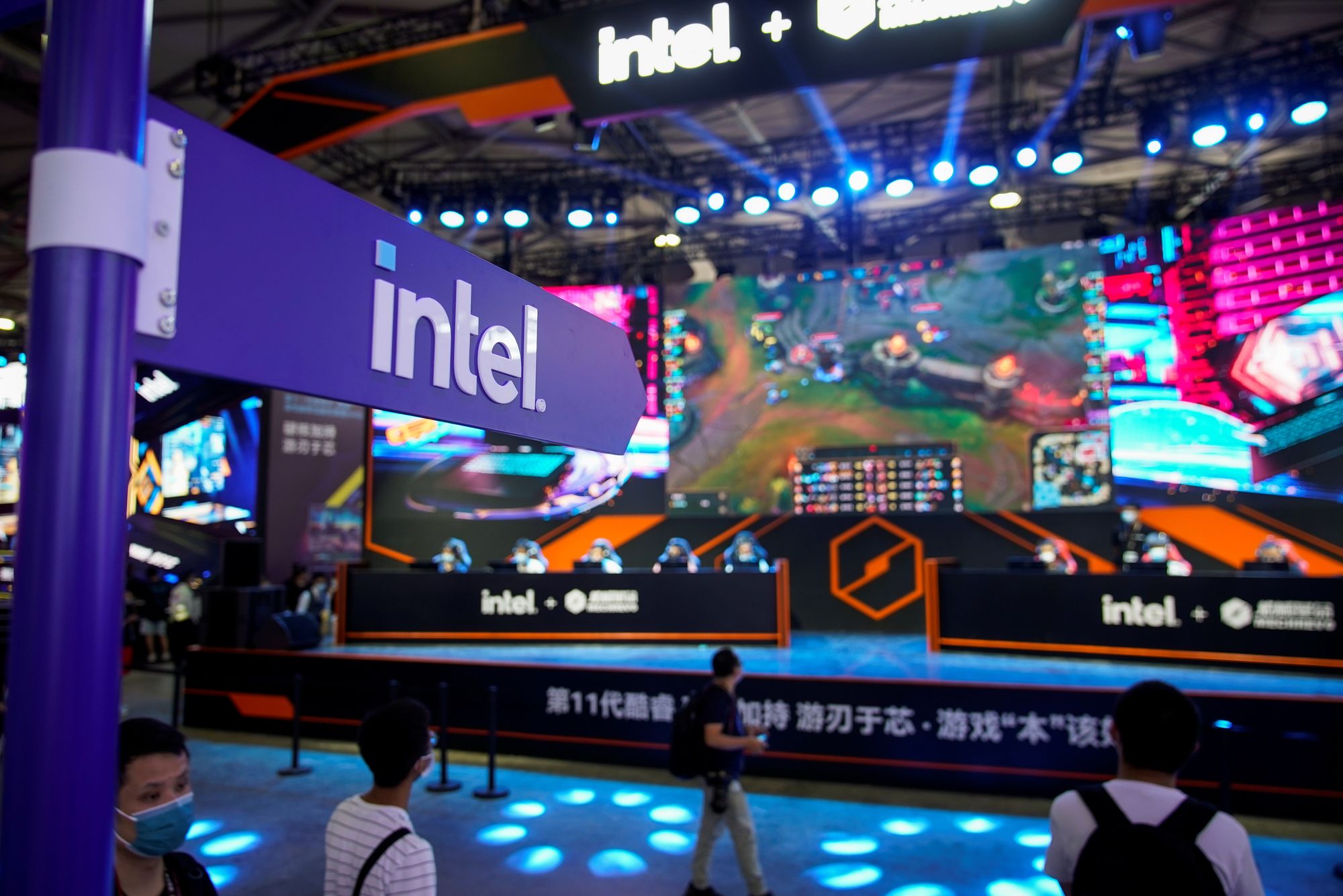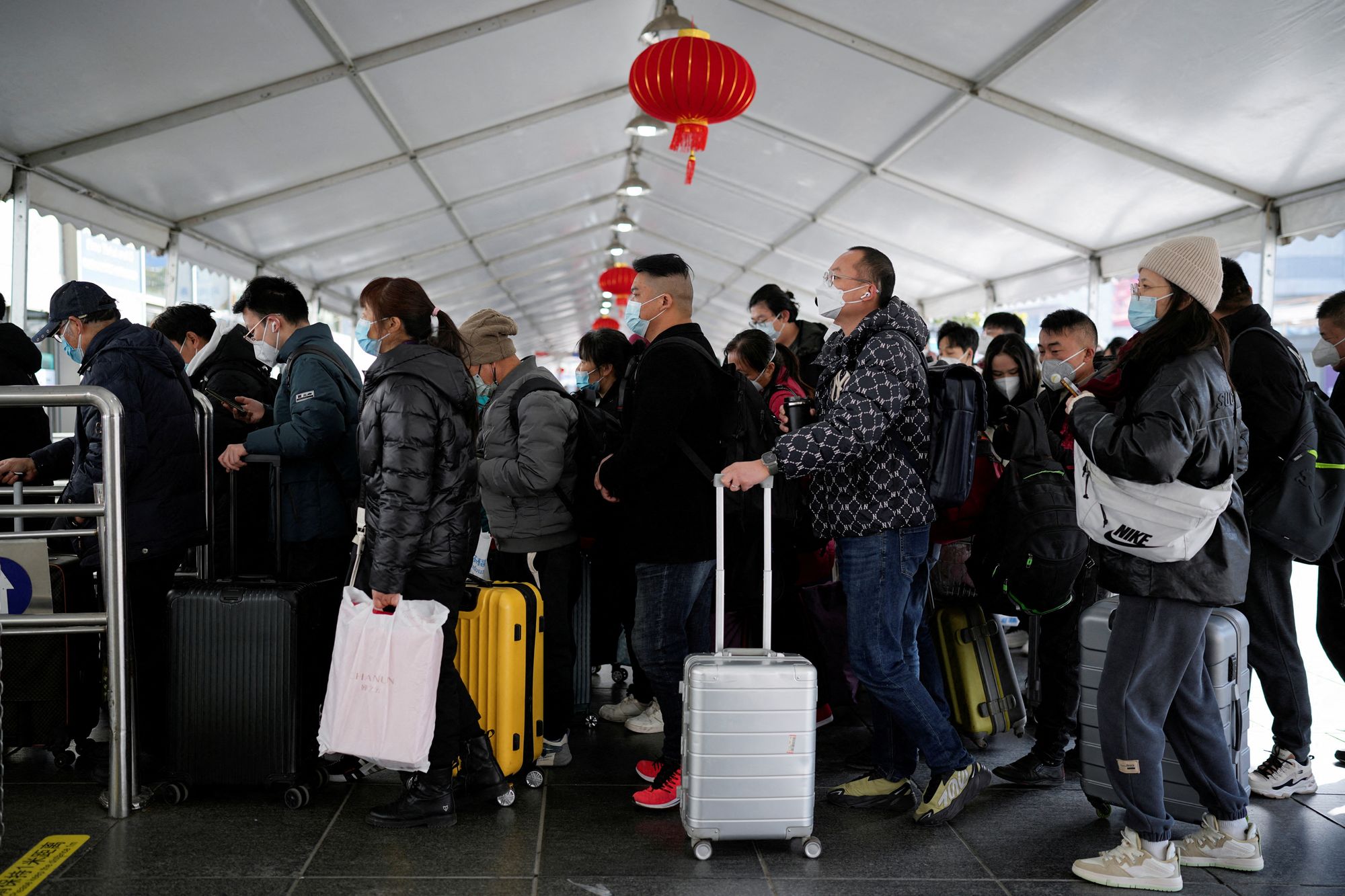From a financial chat crackdown to bringing in the Year of the Rabbit – Here's your January 30 news briefing
US regulators require financial institutions to keep records of all communications between the company and clients to make sure there are no issues with breaking anti-fraud or antitrust laws.

To start off, we're looking into:
Financial chat crackdown
The backstory: US regulators require financial institutions to keep records of all communications between the company and clients to make sure there are no issues with breaking anti-fraud or antitrust laws. So, back in 2021, the US Securities and Exchange Commission (SEC) decided to take a closer look at how major banks were handling digital communications. It wanted to know if they were keeping track of what their employees were saying about official business – especially on personal devices and messaging apps like WhatsApp.
More recently: The SEC wasn't playing around last September when it fined 16 firms, including some big banks, for more than US$1 billion because their staff was using unapproved devices and apps for business communications.
The development: Banks are now keeping an eagle eye on employees' phones and computers to avoid any breaches in communication policies. And if you thought using outside apps like WhatsApp or iMessage was no big deal, think again. Some banks, like Morgan Stanley, are docking pay and bonuses for employees caught breaking the rules. These fines can range from a few grand to a whopping US$1 million.
Intel goes from chip to dip

The backstory: Intel is one of the world's leading chipmakers and used to be at the top of the list. But, over the last decade, it hasn't kept up the pace. Other companies like Samsung and AMD, who use contract chipmakers like TSMC to surpass Intel's own tech, took advantage of its sluggish progress and became the market's biggest and most advanced chip giants.
More recently: Intel's CEO, Pat Gelsinger, who took the role in 2021, has tried to regain that top spot with more contract manufacturing and new factories in the US and Europe.
The development: Last Friday, Intel saw a huge setback when it reported underwhelming earnings. The company's market value took a big hit, losing US$8 billion. Its fourth quarter last year saw a 32% decline in year-on-year revenue and a net loss of US$664 million, which caught both analysts and investors by surprise. The first quarter of 2023 is expected to be no better, with a predicted net loss of 15 cents per share, as well as up to US$3 billion less revenue than expected, mostly because of slow growth in its data center business.
China parties like it’s 2018 for Lunar New Year

The backstory: China dropped its zero-COVID approach last month, and authorities announced plans to open up the country to more travel.
More recently: On January 8, Chinese travel restrictions were lifted. With the Lunar New Year being such a major holiday and travel event, this was great timing for residents. Many people have been gearing up to see family and friends for the first time since COVID travel restrictions were put in place over three years ago.
The development: The Lunar New Year, which kicked off the Year of the Rabbit, began on January 22. Based on reports from state media, Lunar New Year domestic holiday trips in China went up 74% from last year. In fact, over 300 million trips were made during the holiday, which is about 90% of pre-pandemic levels. International travel surged, too, as there were 2.88 million trips made across the border, up 120% from last year, according to government records.
To end, we'll look into:
A 2,200 mile march across India

We’re nearing the 75th anniversary of Mahatma Gandhi’s assassination. In January 1948, he was shot by a religious zealot, Nathuram Godse, who opposed Gandhi’s friendliness towards India’s Muslim community.
Now, Tushar Gandhi, Mahatma’s great-grandson, says that Godse’s attitudes have become a little more common in India. “That whole philosophy has now captured India and Indian hearts, the ideology of hate, polarisation, divisions,” he told AFP news agency. And Tushar attributes these ideas to the rise of Prime Minister Narendra Modi and his Hindu nationalist Bharatiya Janata Party (BJP) to power over the past few years.
The divisive Modi took office in 2014. His government, the Bharatiya Janata Party (BJP), and another far-right Hindu group have warned Hindus against religious conversions to Islam and Christianity and called to prevent a “demographic imbalance.” Since he came to power, there have been increased hate attacks on the Indian Muslim community.
But, the tides could be turning for the country’s rising divide.
With the 2024 election coming up, Rahul Gandhi (no genetic relation to Mahatma), a former leader of India’s Congress Party, has been leading a 2,200 miles (3,500 kilometers) pilgrimage across the country. It started in Kanyakumari in Tamil Nadu and is finishing up in the Himalayas. This trek is reminiscent of Mahatma’s own walk in 1930 when he demonstrated in protest of British taxes and rule in India.
He told supporters joining him, “We started this march to bring people together.”
But will this demonstration change anything?
Even though the Congress Party held power in India for most of its 75 years of independence, its popularity dropped in the past few decades. This march is a test to see if the opposition movement actually has enough clout to pose a threat against Modi and the BJP. Rahul is stopping in even small, remote villages to drum up support from the masses.
But, it looks like Rahul’s march “doesn’t have the capacity to translate the crowd into votes,” said Sanjay Kumar, a professor at the Centre for the Study of Developing Societies in New Delhi. “Nowadays nationalism is a very big issue on which people vote.”
But polls suggest the march is helping Ghandi’s image. Now, officials are considering whether he should lead another march and a door-to-door campaign before the election.
In other news ...
💣Drone strike on Iranian factory: There's been a lot of tension between Iran and the West because of Iran's part in the war on Ukraine and its domestic social unrest. On Saturday, there was an overnight drone attack on a military factory in the country, but the government says it intercepted the drones before they reached their target. On Sunday, media reports surfaced that the US believes Israel to have been behind the attack, according to anonymous insiders.
😢Rising violence in the Israel-Palestine conflict: The most recent Israeli raid in the occupied West Bank last Thursday led to the deaths of nine Palestinians and another Palestinian death later that day. On Friday, a Palestinian shooter killed seven people near a synagogue in occupied East Jerusalem before being shot. World leaders are now calling for a stop to the violence, with the UN human rights office urging peace in the region and expressing concern over the rise of Palestinian fatalities.
📩Czech election: Earlier this month, the Czech Republic held a presidential election without a majority winner. On Saturday, the country held a run-off presidential election. Retired NATO general Petr Pavel won against former Prime Minister Andrej Babis.
⚡Italy signs gas deal with Libya: Europe is still looking for places to get energy without relying on Russian gas. To help alleviate demand, Italian energy company Eni and Libya's National Oil Corporation (NOC) signed a US$8 billion gas production deal on Saturday. But, the deal could be risky with Libya's current political turmoil.
🚌Deadly bus crashes: Pakistan is known for road accidents because of its loose traffic rules and poor infrastructure. On Sunday, a bus fell into a ravine and caught on fire in southern Pakistan, killing at least 41 people. There was also a deadly bus crash in Peru early on Saturday when a bus carrying 60 passengers drove off a cliff. There have been 24 casualties so far. Peru is also known for having rocky roads, and many drivers don't have adequate training.
🏢Attack on Azerbaijan embassy in Iran: On Friday, the Azerbaijan embassy in Tehran was attacked by a man with an assault rifle who killed the head of the security staff and injured two other guards. On Saturday, Iran's President Ebrahim Raisi told Azerbaijani President Ilham Aliyev that bilateral relations shouldn't be affected by the attack. Aliyev condemned it as a terror attack, but Raisi says it doesn't constitute one but was instead a personally motivated attack.
💸Nigeria extends cash exchange deadline: Last October, the Central Bank of Nigeria announced that the 1,000 (US$2.18), 500 (US$1.09) and 200 (US$0.44) naira notes would be replaced, as 80% of the ones in circulation were outside of banks. The CBN is trying to encourage Nigerians to use digital payments and get more cash back into the banking system. But with a deadline at the end of January, there's been a lot of chaos, so that deadline has been extended to February 10.
🌐Earthquake hits Iran: A 5.9 magnitude earthquake hit Iran on Saturday night. Over 800 people were injured, and three people died, according to state news media.
🚢That's a lot of coke: Last week, Spanish cops seized almost 5 tons of cocaine worth about US$114 million. They found it after raiding a cattle ship near the Canary Islands that had reportedly stopped in about a dozen different countries before being busted.
📢Teachers march in Lisbon: In Portugal, teachers say that, because of past career freezes, they're the lowest-paid senior civil servants. With a recent spike in inflation, this issue has become more immediate. On Saturday, tens of thousands of teachers and supporters marched in Lisbon to demand higher pay and better working conditions.
📊Hope for 2023 US recession fears: Economists have feared a recession for the better part of the last year, and everyone was pretty sure the US would see one in 2023. But new data suggests a slowing economy with few signs of an incoming recession. University researchers found a correlation between inaccurate accounting and higher chances of recession. So, although there's been a few cases of "cooking the books" recently, it hasn't been enough to push the US right into a recession.
💻Google launching Chat GPT rival: OpenAI's ChatGPT is an internet phenomenon. According to the New York Times, Google is planning to launch its own AI chatbot to compete with ChatGPT. In 2023, Google plans on creating a version of its search engine with an AI chatbot alongside other AI-powered projects.
🎾Australian Open 2023: In the men's doubles final at the Australian Open, Jason Kubler and Rinky Hijikata won for Australia. This was their first time playing together.
⌚Move over, Patek: Swiss watch manufacturer MB&F is creating high-end designs inspired by things like space travel, cars and even animals. These new designs are a viral sensation, with people signing up to wait years, even decades, to spend US$100,000 or more on one of them. And no surprise about the wait – the company only expects to make 440 watches this year.

🐇The Year of the Water Rabbit: Divers at the Sea World Ancol aquarium in Jakarta, Indonesia, rang in this Lunar New Year by celebrating underwater with a lion dance show. The rabbit, in Chinese culture, is believed to be a symbol of longevity, peace, and prosperity, so 2023 is set to be a year filled with hope.
Written and put together by Joey Fung, Vanessa Wolosz, Shebby Farooq and Christine Dulion




Comments ()